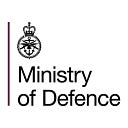Preparing soldiers to support the NHS
Jeff Price tells us what it's like to help prepare British Army soldiers as they embark to support the Welsh Ambulance Service NHS Trust (WAST)
60 British Army soldiers are training to prepare to support the WAST in the battle against the coronavirus outbreak.
We hear from the Senior Educational and Development Lead (Clinical) Jeff Price from the WAST about the training his team are giving.
Heres what Jeff Price had to say 👇
I lead a team of trainers, predominately clinical and over the last two days we were tasked by our service (the WAST) to introduce learning and development to soldiers who may need to support us during the COVID-19 virus.
· Military Aid to Civil Authorities: The COVID Support Force
Its been an interesting two days, we’ve introduced the soldiers to many clinical topics. Their primary role will be to assist a clinician, that would either be an emergency medical technician or paramedic. And with support from our driving team, they will drive the ambulances as and when required.
With the clinical side of things, we have been reviewing manual handling, so how they would assist me as a paramedic if I was removing somebody from a house, some of the equipment we use, some of the carrying chairs we use.
For example how to use manoeuvring equipment to move patients from a sitting position onto a stretcher.
Also if they were involved in resuscitation with a patient, we have been teaching them how they would assist that clinician, how they use the equipment — very much a supportive role.
It’s all about how they would assist us. It’s an introduction to all of those things so that they can safely and appropriately assist while we are in practice.
I came up early on a site visit and met one of the officers up here, everything was here on hand, they showed me all the facilities on base here at Sennybridge. We came up with a plan of how to move forward for the Monday. Everything has been great.
I chatted to some of them about the first day, they say that they've learnt loads — its a lot of information we’ve given them over a short period of time.
If you put it into context of an emergency medical technician — that's the person that will predominately work with the paramedics — that we train, it takes us 14 weeks to get to that sort of level and they do 750 hours in practice.
I’ve had a brief chat with some of the soldiers today and yesterday, they all seem very keen, don’t seem phased by anything, don’t seem anxious at all. They are keen to learn.
We here are trying to do a very condensed version over two days, to meet the needs of COVID-19 and assist us. They have asked some very pertinent questions as I've gone round and seen them.
I also look at them as potential recruits to us in the future. They are very enthusiastic and very organised.
